Are you unsure about installing plugins that haven’t been tested with your current WordPress version? It’s not uncommon to come across a plugin that seems perfect for your site, but hasn’t been tested with the latest WordPress update. This can leave you wondering if it’s safe to install and use without causing any issues.
In this article, we’ll explore the topic of installing untested plugins and whether or not it’s a risk worth taking.
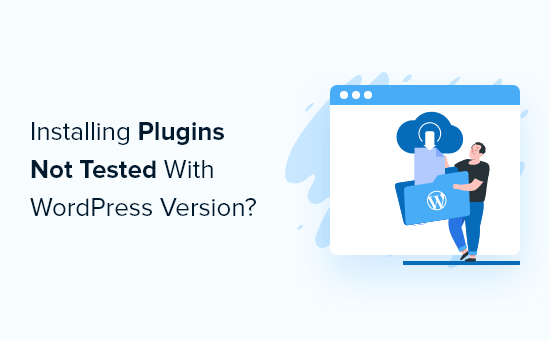
How does WordPress obtain the information that a plugin has not been tested?
Do you ever wonder how WordPress determines whether a plugin has been tested with your version of WordPress, or who is accountable for testing it?
When submitting plugins to the WordPress plugin directory, authors are required to include a ‘readme’ file along with their plugin. This file is utilized by WordPress to generate the page that contains information about the plugin.
Plugin authors are responsible for testing their plugin with the most recent version of WordPress and manually updating the version number in their readme file.
If you come across the message ‘This plugin hasn’t been tested with the latest version of WordPress,’ it indicates that the plugin author has not updated the readme file with the latest WordPress version number.
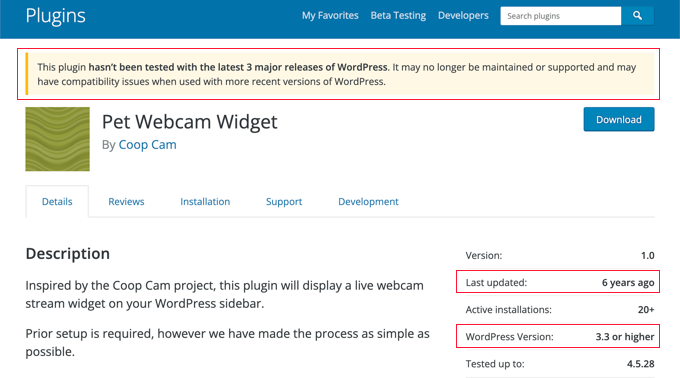
Just because a plugin hasn’t been tested with the latest version of WordPress doesn’t automatically imply that it will cause errors in WordPress.
What is the reason behind WordPress plugin authors not updating their readme files?
At times, plugin authors fail to update their readme files even after testing their plugins to ensure compatibility with the latest WordPress release.
Ideally, this information should be updated promptly whenever a plugin is tested and found to be compatible with the newest WordPress update.
However, many developers are often preoccupied with paid development projects, and as the plugins listed in the WordPress plugin repository are free, there is less motivation for them to regularly update both the plugins and the readme file.
Is it advisable to install WordPress plugins that have not been tested?
However, it’s important to note that not all plugins are created equal. Some plugins may have compatibility issues with the latest version of WordPress, which could cause problems with your website. It’s always a good idea to do your research and check reviews before installing any plugin.
In summary, whether a plugin will work with the latest version of WordPress depends on the plugin’s functionality and complexity. The ‘not tested’ message doesn’t necessarily mean the plugin has problems or security issues. It’s always a good idea to do your research and check reviews before installing any plugin to ensure it works properly with your website.
This will show you the last time the plugin was updated and how many active installations it has. If the plugin has a lot of active installations and was recently updated, then it’s likely safe to install.
However, if the plugin hasn’t been updated in a long time and has very few active installations, then it may not be safe to install.
In summary, the ‘not tested’ message doesn’t necessarily mean the plugin won’t work with the latest version of WordPress. It’s important to do your own research and check the plugin’s development page to ensure it’s safe to install.
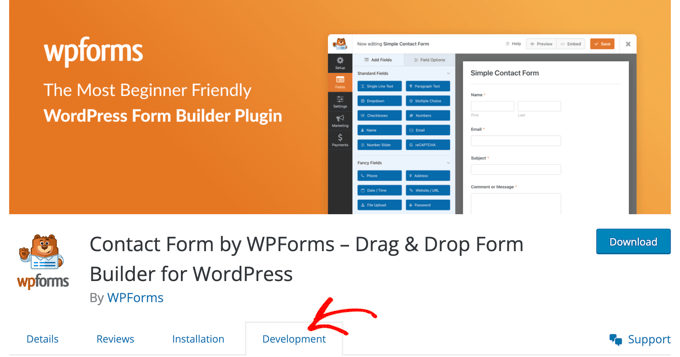
Here, you can see when the plugin was last updated and recent changes and improvements to the plugin in the ‘Changelog’ section.
If the developer is actively updating the plugin, then it usually means the plugin is high quality and safe to use on your WordPress website.
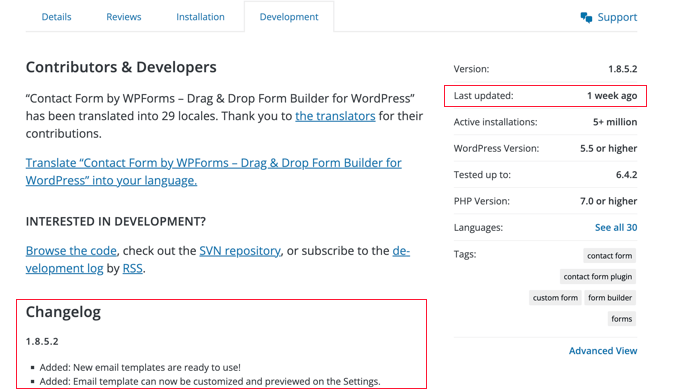
Alternatively, if the reviews are negative or outdated, it’s best to avoid the plugin altogether. It’s also important to check the number of active installations, as a high number indicates that the plugin is popular and widely used. However, this doesn’t necessarily mean that it’s the best option for your website.
Before installing any plugin, it’s crucial to read the description and check if it meets your website’s needs. Some plugins may have overlapping features, which can cause conflicts and affect your website’s performance.
In summary, researching and carefully selecting plugins is essential for maintaining a secure and efficient WordPress website. By checking the update frequency, reviews, and active installations, you can make informed decisions and avoid potential issues.
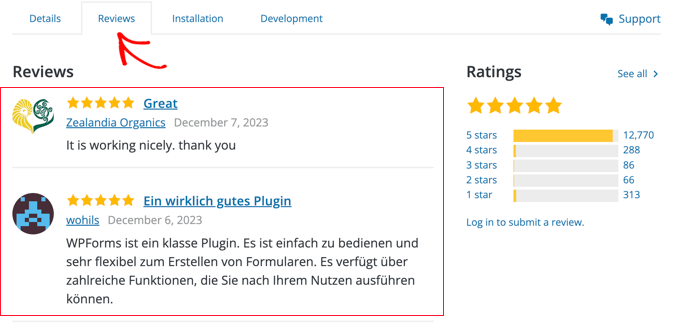
Lastly, it is recommended to test the plugin on a local WordPress installation. This allows you to identify any potential issues or conflicts without impacting your live website.